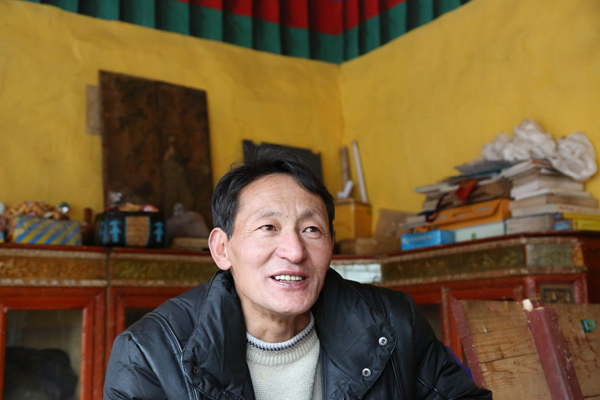 |
|
Migmar Tsering, 38, is a sixth-generation thangka artist. |
The 38-year-old artist is the sixth-generation inheritor of thangka embroidery. He heard many stories about the traditional art from his mother when he was a little boy.
But his passion for the family heritage did not begin until he was 15 years old.
Migmar Tsering's first job was at a construction site in Lhasa city. He then turned into a painter of pictures on the walls of various buildings.

After saving some money, he again changed his profession, buying and selling second-hand goods for several years, when he realized the value of thangka embroidery and started learning from his uncle in 1990.
His solid painting skills as well as attention to detail have made his work different from others.
In 2001, Migmar Tsering opened his own workshop and took in eight apprentices including a youngster from Yunnan province.
Although Tibet University based in Lhasa offers a thangka program, most painters still follow the traditional master-apprentice practice.
The government has created better conditions for thangka artists, he says.
In 2005, the central and regional governments invested more than 40 million yuan ($6.4 million) in Tibet to preserve its intangible cultural assets.
In 2008, thangka embroidery made the list of the State Intangible Cultural Heritages.
"As an inheritor, I hope the art of thangka can blossom and I will dedicate myself to carrying it forward," Migmar Tsering says.
Contact the writers through daqiong@chinadaily.com.cn.
Related:
|
|
|
| Fighting spirit | Cornering the market |
Bronze sculptures continue to shine
Protection for unique culture and heritage
|
|
|
|
|
|
|
|